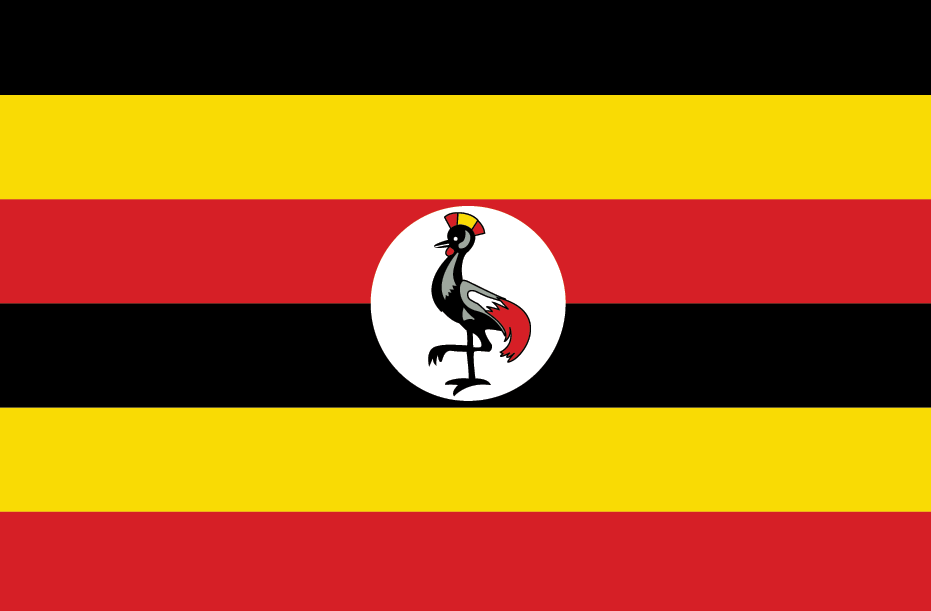
Sustainability Efforts
Country: Uganda
Explore sustainability efforts in Uganda. The United States Environmental Protection Agency (“EPA”) said it well when they state:
“Sustainability is based on a simple principle: Everything that we need for our survival and well-being depends, either directly or indirectly, on our natural environment. To pursue sustainability is to create and maintain the conditions under which humans and nature can exist in productive harmony to support present and future generations.”
About Uganda
Uganda, located in East Africa, is a country known for its diverse wildlife, including the endangered mountain gorillas in Bwindi Impenetrable National Park. It offers stunning landscapes such as Lake Victoria and the source of the Nile River. Uganda is culturally rich, with over 50 ethnic groups contributing to its vibrant traditions. The country has made strides in wildlife conservation, eco-tourism, and community-based initiatives. However, it faces challenges such as poverty and healthcare access. Uganda’s warm hospitality, natural wonders, and cultural heritage make it a captivating destination for travelers. Sustainability efforts in Uganda will enhance the country’s future.
Sustainability Efforts
Toggle each button below to “open” and “close” the presented data.

1. Poverty: Uganda has made significant progress in combating poverty over the years. The government has implemented poverty reduction programs that aim to improve access to basic services, create employment opportunities, and promote sustainable livelihoods. According to the World Bank, the poverty rate in Uganda decreased from 56% in 1992 to 21.4% in 2019, demonstrating the effectiveness of poverty alleviation efforts.

2. Hunger: Efforts to combat hunger and improve food security in Uganda are underway. The government, in collaboration with international organizations and NGOs, has implemented programs to enhance agricultural productivity, promote sustainable farming practices, and increase access to nutritious food. Despite ongoing challenges, the prevalence of undernourishment in Uganda decreased from 35% in 2000 to 23.6% in 2019, reflecting progress in addressing hunger.

3. Healthcare: Uganda is committed to improving healthcare services and access for its population. The government has implemented policies to strengthen the healthcare system, enhance infrastructure, and increase the availability of essential medicines and healthcare professionals. Efforts are being made to address public health challenges such as HIV/AIDS, malaria, and maternal and child health. However, there is still a need to expand healthcare coverage in remote areas.

4. Education: Education is a key focus in Uganda, and efforts have been made to improve access to quality education. The government has implemented initiatives to enhance school infrastructure, provide teacher training, and promote inclusive and equitable education. Significant progress has been made in increasing primary school enrollment rates, with a net enrollment rate of 92% in 2019, according to UNESCO.

5. Gender Equality: Uganda recognizes the importance of gender equality and has taken steps to promote women's empowerment. The government has implemented policies and programs to address gender disparities, increase women's participation in decision-making, and enhance access to education and healthcare. Efforts are being made to combat gender-based violence and promote women's economic empowerment through entrepreneurship and skills training.

6. Clean Water Sanitation: Uganda is working towards improving clean water and sanitation services for its population. The government, with support from development partners, has implemented projects to increase access to clean drinking water and proper sanitation facilities, particularly in rural areas. According to UNICEF, in 2020, 78% of the Ugandan population had access to basic water services, showcasing progress in water and sanitation infrastructure.

7. Affordable Clean Energy: Uganda is actively promoting affordable clean energy solutions to meet its energy needs sustainably. The government has prioritized renewable energy sources such as solar, hydro, and biomass, and has implemented policies to attract investment in the clean energy sector. Initiatives such as the Rural Electrification Program have significantly increased access to electricity in rural areas, benefiting households and promoting economic growth.

8. Economic Growth: Uganda has experienced consistent economic growth in recent years. The government has implemented policies and programs to promote investment, trade, and entrepreneurship. According to the International Monetary Fund (IMF), Uganda's GDP growth rate averaged around 5% from 2016 to 2020, indicating positive economic development.

9. Industry Innovation: Uganda is fostering industry innovation to promote economic diversification and value addition. The government supports innovation hubs, business incubation centers, and provides incentives for research and development activities. Efforts are being made to promote technological advancements, support startups, and facilitate knowledge transfer to drive industry innovation.

10. Reduced Inequalities: Uganda is committed to reducing inequalities and promoting social inclusivity. The government has implemented policies and programs to address income disparities, improve access to services, and support vulnerable groups. Efforts are being made to ensure equal opportunities for all Ugandans, irrespective of their social or economic background.

11. Sustainable Cities: Uganda is working towards building sustainable cities and human settlements. Efforts are underway to promote urban planning, improve infrastructure, enhance waste management systems, and increase access to green spaces. The government is focusing on sustainable transportation, energy efficiency, and climate-resilient urban development.

12. Responsible Consumption and Production: Uganda recognizes the importance of responsible consumption and production patterns for sustainable development. The government encourages sustainable agricultural practices, promotes waste reduction and recycling, and supports initiatives that promote sustainable consumption choices. Efforts are being made to raise awareness among citizens and businesses about the importance of responsible consumption and production.

13. Climate Action: Uganda is actively engaged in climate action to mitigate and adapt to the impacts of climate change. The government has developed policies and strategies to promote renewable energy, reduce deforestation, and enhance climate resilience in key sectors such as agriculture and water resources. Uganda has also made commitments under the Paris Agreement to reduce greenhouse gas emissions.

14. Aquatic Environment: Uganda recognizes the significance of its aquatic environment, including lakes, rivers, and wetlands. Efforts are being made to protect and conserve these ecosystems through the establishment of protected areas, enforcement of regulations on fishing and pollution, and community-based conservation initiatives. The government works with local communities and international partners to safeguard the aquatic environment.

15. Natural Environment: Uganda is rich in biodiversity and has made efforts to preserve its natural environment. The government has established national parks, wildlife reserves, and forest reserves to protect habitats and conserve wildlife species. Initiatives such as reforestation programs and sustainable land management practices contribute to the preservation of Uganda's natural environment.

16. Peace and Justice Institutions: Uganda maintains peace and justice institutions to ensure social stability and uphold the rule of law. The government works towards maintaining a peaceful society, protecting human rights, and promoting justice for all citizens. Legal frameworks and institutions are in place to address conflicts, promote accountability, and protect the rights of individuals.

17. Partnerships for the Goals: Uganda recognizes the importance of partnerships in achieving sustainable development goals. The government collaborates with international organizations, donor countries, civil society, and the private sector to mobilize resources, share expertise, and implement sustainable development projects. These partnerships play a crucial role in addressing various challenges and achieving Uganda's sustainable development objectives.



